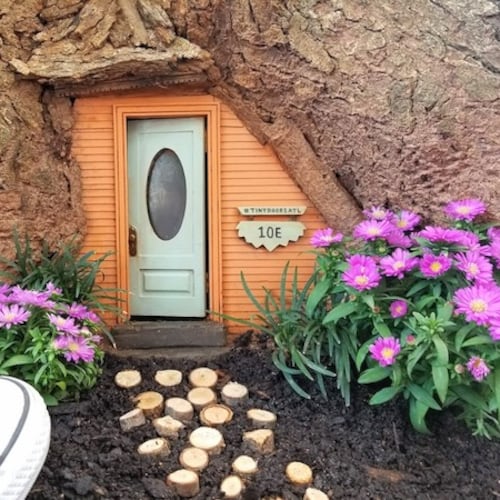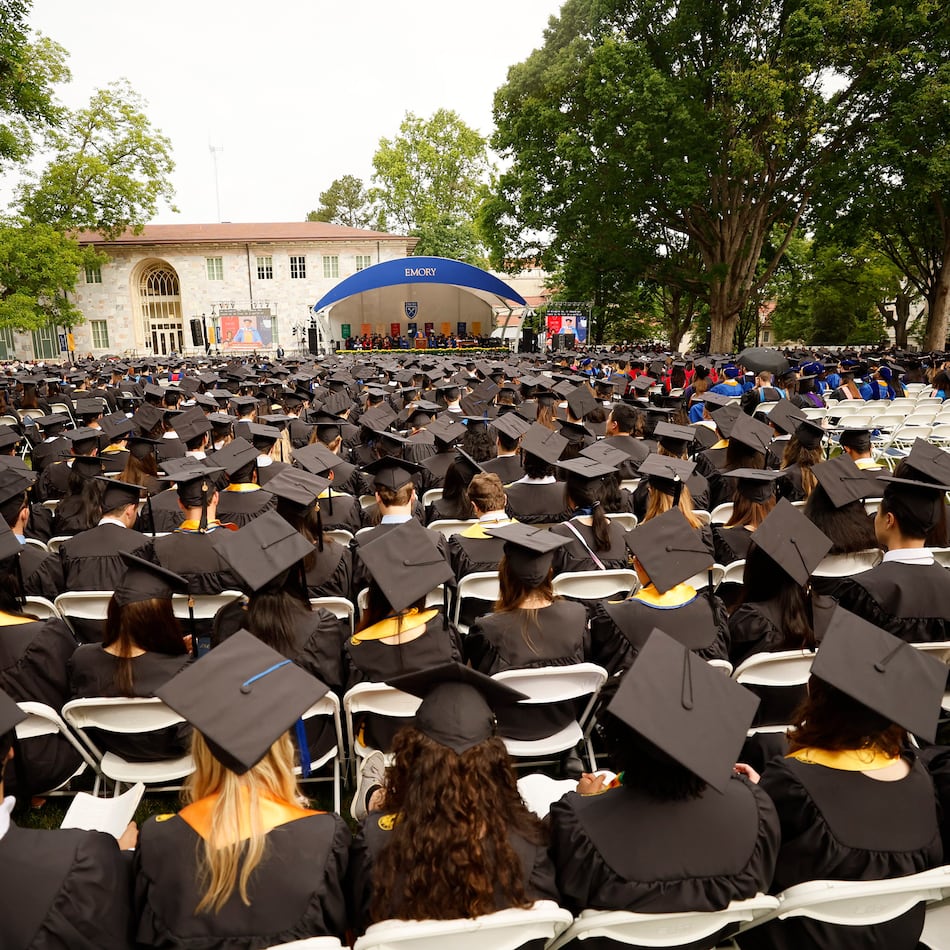Next to her family, Becky Springer’s hands and feet were her most prized possessions.
“I got manicures and pedicures every two weeks religiously,” she said.
Like most people, she'd never considered what life would be without them. There was no reason to.
For years, her hands had enjoyed the warmth of her husband Paul; held their three daughters Ashley, Mary Catherine and Gretchen; helped make their Dunwoody dream house a home. And those feet, they carried her to and fro across the girls’ nursery and pressed the gas pedal to get them to school and church and back home again.
She and Paul moved here during the first week of the 1996 Olympics from Houston, where the couple was married and where Becky was born.
It was easy to settle in. Paul had grown up here and Becky, now42, looked forward to having four seasons. They enjoyed successful careers – Paul as a banker turned home builder and Becky as a manager at INVESCO Retirement before quitting her job to stay at home.
They felt lucky to have Paul’s family nearby and neighbors who valued family as much as they did.
If there were an ominous U-turn ahead, they couldn’t imagine what it might be. God had dealt them a nearly perfect hand.
****
Just days before Valentines Day 2008, Becky started experiencing chills.
She made dinner but felt so bad she didn’t eat. As the night wore on, she felt worse. By morning, it was as if she’d drank poison. The tips of her fingers tingled.
“I can’t even describe the pain, but something inside of me told me I was really, really sick," she recalled recently.
Paul came home from work. Before he could ask what was wrong, Becky whisked by him and got in the car.
“It was almost like I was being carried by angels,” Becky recalled.
Paul dropped his wife off at Northside Hospital and headed back home to take care of baby Gretchen. He figured Becky had gotten the flu and would be fine, but then the phone rang.
Doctors determined Becky had septic shock. She might not make it.
“I couldn’t believe it,” recalled Paul as he fought back tears.
****
Soon the family was holding a vigil at Becky's bedside.
Paul began to dread seeing doctors, who brought more bad news each day. Blood clots had left dark bruises on her face. Her hands and feet were black and shriveled. Her kidneys shut down.
Becky, semi-conscious, fought for life with both body and mind.
“I have to fight this,” she told herself. “I can’t give up. I can’t leave my children. Nope. Not my time.”
It helped that she could smell the love of her life over her hospital bed, smelling like the pomegranate noir soap he bathed with, willing her to fight.
Meanwhile doctors worked around the clock, trying to get her healthy for more surgery. They had decided her hands and feet -- the physical features she loved most -- would have to be amputated.
Nearly two months after she'd become ill, doctors performed the surgery and Becky was finally well enough to move out of intensive care to a regular room. Family and friends were celebrating her 40th birthday there on April 12, 2008, when Becky suffered a stroke and lost part of her vision.
"It was one thing after another," said Paul.
****
Over the next few days Becky’s eyesight improved and the hospital physical therapist came knocking.
Every day for the next two weeks, she got Becky up and walking on “these excruciatingly painful temporary prosthetic legs."
Each day for a week, Becky took one step, then two, until finally she could reach the door, then the hallway.
“Before I left there I was walking all the way around the nurse’s station,” said Becky. “That was a huge accomplishment.”
In May, Becky left Northside Hospital for the Rehabilitation Institute of Chicago and six more weeks of physical therapy.
Not only did Becky learn to walk again, she learned to climbed stairs, regained her strength and redeveloped muscle that would allow for a full range of motion.
She helped design cuffs that would allow her to brush hair and teeth and feed herself before finally going home on June 19, 2008.
“It was so exciting,” said Becky. “I felt like I was getting out of jail and coming back to the real world.”
She had just one wish: to live as normal a life as possible.
****
Friends and relatives stretched for three blocks from the Springers’ driveway on Redfield Lane back to the neighborhood pool to welcome Becky home. Kids held signs with balloons. Grown-ups cheered and applauded.
"It was unbelievable," recalled Becky, who walked back into her home for the first time in more than four months using the prosthetics.
The girls, now 11, 9 and 4, by then were used to seeing their mother without hands or feet.
“It was like a non-issue to them,” said Becky. “It was intriguing but not traumatic or scary.”
. Neighbors and friends eased the family's burden by continuing to make dinners for them every night.
Except for the loss of her hands and feet and kidneys that required dialysis three days a week, Becky Springer was still very much Becky Springer -- positive, outgoing, determined.
Her mother had taught her that, no matter the circumstances, people can choose to be happy or not. Becky chose happiness.
“I have days when I’m very sad and wish things were different, but overall I try to get on with the getting on,” she said.
That has meant giving up makeup and cutting her hair. She wears her wedding band on a chain around her neck.
She still cleans house and shops for groceries. And she has taught herself to sign her name when making credit card purchases.
“It’s not pretty but it works,” she said.
She hopes for a new kidney and right arm prosthesis. Meanwhile she still takes care of her girls, still attends PTA meetings and other school functions; still greets Paul and the girls with a kiss and hug.
“Hello, Miss Thing,” she says to Gretchen with outstretched arms after a recent school day. “Did you get a ticket for being a good girl today?”
Gretchen, 4, produces her ticket and retreats to the basement to watch TV.
In addition to more $60,000 in donations they received from fundraisers sponsored by their church and community, the couple's insurance paid for Becky's hospital bills. She also receives medical disability.
Becky turns to her nanny, Jennifer King, with some final instructions. Jennifer comes twice a week to help with tasks Becky can't do alone. She drives the girls to school, for instance, and Becky to the grocery store.
For the rest she depends on Paul.
"Most men would have packed it up and moved on,” said Becky. “Paul stepped up to the plate. He was my advocate. He was the chick that cracked out of the egg.”
Paul Springer said it was his duty to be there, a lesson he learned from watching his father, Joe, care for his mother and siblings.
He remembered an encounter with the guy who once told him when you have a river to cross, you just cross it.
“That’s what we did,” he said. “All the hard stuff is just a new normal for us.”
Note: Potential kidney donors for Becky Springer may get tested at Piedmont Transplant Institute, 1968 Peachtree Road Northwest in Atlanta.
About the Author
Keep Reading
The Latest
Featured


